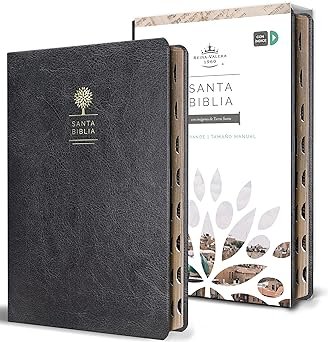John 3:16 – “For God so loved the world that he gave his only begotten Son, that whosoever believeth in him should not perish, but have everlasting life.”
What Bible passage has been quoted in stadiums, printed on T-shirts, preached to millions, and remembered by entire generations around the world?
Throughout history, some verses have left an indelible mark, but there is one that stands out above the rest, transforming lives and shaping cultures.
Find out why in this article John 3:16 is the most famous verse in the Bible, and what its message can mean for you today.
Is there really a more famous verse in the entire Bible?
The Bible is made up of thousands of verses, but only a few have achieved global notoriety and multigenerational impact.
Here I explain why some verses stand out above others and how one has come to be considered the most famous:
How the fame of a Bible verse is measured
It's not just about how many times a verse has been read, but how many times has it been quoted, shared, memorized and preached.
The fame of a verse also depends on its presence in public media, its use in evangelistic campaigns and its recognition outside the religious sphere.
Verses like John 3:16 have become popular not only for their spiritual content, but also for their global visibility, appearing in sporting events, banners, movies, songs, and social media.
Therefore, the fame of a verse is not subjective: it can be measured by its cultural impact, its universality, and its frequency of appearance in diverse contexts.
The cultural, spiritual and media impact
A famous verse transcends the pulpit.
It is known not only within churches, but also by non-believers, the media, and artistic expressions.
Spiritual impact is measured by the number of lives transformed by listening to it, meditating on it, or memorizing it.
Many testimonies of conversion, comfort, or emotional healing begin with a key Bible verse.
At the media level, some verses have been used by public figures, projected at concerts, football games (as in the case of Tim Tebow), or even in social campaigns.
This scope makes certain verses recognizable in almost any culture in the world.
Verses that have crossed religious boundaries
There are verses that have been adopted even by people who do not profess the Christian faith, but who recognize in them a universal message of hope, love or strength.
John 3:16, Psalm 23:1, Jeremiah 29:11, and Philippians 4:13 have been quoted by artists, politicians, athletes, psychologists, and even in Hollywood movies.
These verses have crossed denominational boundaries, being valued by Catholics, Evangelicals, Orthodox and even some readers of Jewish and Muslim traditions.
What makes them special is not just their content, but their power of emotional and spiritual connection with anyone, under any circumstances.
John 3:16 — The most famous verse in the Bible
John 3:16 has been called the “heart of the gospel,” and it is no coincidence that it is recognized worldwide as the most famous verse in all of Scripture.
Here I explain why this text has touched millions of lives, its profound message, and its relevance to the Christian faith:
Full text and most popular translations
This is the verse in its most common form, according to the Reina-Valera 1960:
“For God so loved the world that he gave his only begotten Son, that whosoever believeth in him should not perish, but have everlasting life.”
Other popular translations retain the essence of the message, with slight variations that aid understanding:
- NIV (New International Version):
“For God so loved the world that he gave his only begotten Son, that whoever believes in him should not perish but have everlasting life.”
- DHH (God Speaks Today):
“For God so loved the world that he gave his only Son, that whoever believes in him should not perish but have eternal life.”
These versions help better capture the richness of this verse, adapting them to modern language while maintaining the strength of its message.
Brief theological explanation of the message of salvation
This verse summarizes the gospel in one sentence.
Each word is loaded with doctrinal depth:
- “For God so loved…”
It expresses an unconditional, immense and personal love.
Love is the source of the plan of redemption. - “To the world…”
Not just to a select group, but to all humanity, including every individual.
It is an inclusive, universal and eternal love. - “Who gave his only begotten Son…”
God gave the most valuable thing he had: his only Son.
This implies voluntary sacrifice and the incarnation of Christ as a mediator. - “So that everyone who believes in him…”
It is not by works, nor by inheritance, but by personal faith.
Access to salvation is open, but it requires belief. - “Do not perish, but have eternal life…”
God does not desire condemnation, but eternal life.
This is the purpose of the gospel: save, redeem, and transform.
Theologically, John 3:16 affirms the love of God, the centrality of Christ, and the necessity of faith to receive salvation.
Why this verse is central to Christianity
John 3:16 condenses in a few words all the history of redemption.
It is a starting point for preaching the gospel, a pillar of doctrinal formation, and a truth that comforts and transforms.
This verse:
- Teaches who God is: a loving Father.
- Show who Christ is: the Savior sent.
- Explain the human response: believe in Him.
- Declare the eternal outcome: salvation and life.
That's why it has been memorized by children, quoted in missionary campaigns, translated into hundreds of languages, and featured in secular media.
For millions of believers, John 3:16 is the gospel in one sentence.
It is the point where heaven touches earth, and where God's love becomes tangible for human beings.
That's the power behind the most famous verse in the Bible.
History and context of John 3:16
To understand the depth of John 3:16, it is necessary to analyze its context.
This verse does not appear in isolation, but in the midst of an intimate and revealing dialogue between Jesus and a Jewish religious leader.
Here we explore the setting that gives rise to this eternal message:
Dialogue between Jesus and Nicodemus
John 3:16 comes up in a night conversation between Jesus and Nicodemus, a respected Pharisee and member of the Sanhedrin.
Nicodemus had recognized that Jesus came from God, but he did not fully understand his message.
Jesus spoke to him about the need for to be born again to enter the Kingdom of God, revealing profound spiritual truths.
In this context, Jesus explained what the plan of salvation would be like and mentioned faith as a requirement to receive eternal life.
It is in this conversation that John 3:16 is spoken: as the revelation that God's love is the source of the new birth.
Jesus not only instructs, but offers the solution to Nicodemus's spiritual dilemma… and that of all humanity.
The background of the Gospel of John
The Gospel of John was written for the purpose of show that Jesus is the Son of God, and that by believing in Him, people can have eternal life (John 20:31).
Unlike the synoptic gospels, John focuses on the divine identity of Christ, his speeches and signs, and in the call to faith.
John 3:16 sums up that whole purpose.
It is not just a doctrinal teaching, but the heart of the entire gospel message.
Each word is aligned with the objective of the book: lead readers to a transformative faith in Christ.
Relationship with the Old Testament (bronze serpent)
Just before John 3:16, in verse 14, Jesus makes a striking comparison to an Old Testament story:
“And as Moses lifted up the serpent in the wilderness, even so must the Son of Man be lifted up.”
This story is found in Numbers 21:4-9, where the people of Israel had sinned and God sent poisonous snakes.
When Moses intercedes, God commands him to lift up a bronze serpent: Whoever looked at her with faith would be healed.
Jesus uses this image to explain that He would be lifted up on the cross, and that everyone who “looks upon him” in faith will also be saved.
This connection shows that John 3:16 is not a new theological invention, but the fulfillment of a pattern of faith, judgment and redemption present since the beginning of biblical history.
Keywords that make John 3:16 a universal verse
Every word of John 3:16 has been an inspiration, comfort, and guidance to millions of people around the world.
Here we analyze why certain phrases have become so powerful and meaningful in any language and culture.
“For God so loved the world”
This sentence establishes the divine motivation behind the plan of salvation: love.
It is not a limited, emotional or conditional love.
It's a love intense, deep and universal, capable of encompassing all of humanity.
It does not say “God loved the good” or “those who obey him,” but “the world.”
This includes everyone: rich and poor, wise and ignorant, saints and sinners.
God doesn’t wait for us to be perfect before He loves us… He loves us first.
“He gave his only begotten Son”
The love of God is not just words, but sacrificial action.
He “gave” his Son: he gave him over to the world, to pain, to rejection and to the cross.
The word “only begotten” indicates that Jesus is unique in his nature: divine, eternal, unparalleled.
He is not just another prophet.
He is the Son sent from heaven, the only one capable of restoring the relationship between God and human beings.
This act of surrender is the center of Christianity and the purest expression of divine love.
“So that everyone who believes in him may not perish.”
Here is where the human response to the love of God: believe.
Perfection is not required, but faith.
Religion is not required, but rather trust in the person of Jesus.
This part is deeply inclusive: “everyone” means that no one is excluded.
Neither your history, your past, nor your sins can prevent you from receiving this promise if you believe.
The expression “don't miss” speaks of a eternal reality: separation from God and condemnation.
But it also points to the hope of avoiding it through faith.
“But have eternal life”
The ultimate goal is not only to avoid punishment, but receive a life that never ends, a life of fullness, communion and purpose with God.
Eternal life does not begin after death.
It begins the moment a person places his or her faith in Christ.
It is a new way of living: with hope, direction, forgiveness and peace.
This final sentence is the culmination of the Christian message: a new beginning here… and a secure eternity with God.
That's why John 3:16 remains the verse that sums it all up.
How this verse has influenced the history of Christianity
John 3:16 is not only the most quoted verse, but also one of the most influential in the spread and practice of Christianity.
Here's how it has left a profound mark on global preaching, culture, and evangelization:
Evangelism and major missionary campaigns
From the first centuries to the present day, John 3:16 has been the heart of countless evangelistic sermons..
Great missionaries and preachers such as Billy Graham, Dwight L. Moody, and Luis Palau used it as a basis to call thousands to repentance and faith.
This verse is ideal for evangelizing because it contains all the essential elements:
- Love of God.
- Person of Christ.
- Human condition.
- Need for faith.
- Promise of eternal life.
Many evangelical organizations have printed it on pamphlets, wristbands, T-shirts, and pocket Bibles.
It is one of the most widely used resources for communicating the gospel in a clear, direct, and universal way.
Appearances in stadiums, banners and media
John 3:16 has reached a iconic presence at public events, especially in the field of sports.
One of the most well-known cases was that of the American football player Tim Tebow, who wrote “John 3:16” on his eyes during a televised game that attracted millions of internet searches.
He has also appeared in:
- Banners in stadiums.
- Street advertising.
- Tattoos and accessories.
- Television channels and social networks.
Its power lies in that it is short, easy to remember, and conveys immediate hope.
Even unchurched people have been confronted or comforted by this verse spoken of in unexpected places.
John 3:16 in Christian art, music, and film
This verse has inspired songs, movies, books, and visual works that proclaim the message of the cross.
In the Christian music, artists such as Michael W. Smith, Hillsong and Marcos Witt have composed anthems based on its message.
In the cinema, films like “John 3:16” or key scenes from productions such as The Chosen and The Passion of Christ have used this verse to portray the center of the gospel.
In visual art, murals, paintings and illustrations throughout history have captured this moment as symbol of God's redemptive love.
John 3:16 is not only preached, You sing, you paint, you act... and you live.
Other verses also considered very famous
Although John 3:16 is the most prominent, There are other verses that have been deeply influential in Christian life and are also considered popular for their timeless message.
Here I show you some of the most well-known ones and why they have resonated so deeply with the hearts of millions.
Psalm 23:1 – “The Lord is my shepherd”
This verse has been symbol of comfort, provision, and divine guidance for centuries.
Often cited at funerals, times of distress or crisis, it reminds us that God cares for his sheep like a shepherd.
Its strength lies in the first sentence: “I shall not want.”
It is a declaration of faith and absolute trust in divine provision.
Jeremiah 29:11 – “I know the plans I have for you.”
One of the most encouraging verses in the Old Testament.
It has been key to encouraging people facing uncertainty, crisis, or discouragement.
God speaks of plans for well-being, not evil, to give “future and hope.”
Although it was addressed to the people in exile, its spiritual application lives on today for those who trust in God's purpose.
Philippians 4:13 – “I can do all things through Christ”
A verse from strength and spiritual improvement.
It has been an emblem for athletes, leaders, and people in recovery.
Its power is in the source: Christ is the one who strengthens, not human will.
It is a call to depend on God to face any challenge.
Proverbs 3:5 – “Trust in the Lord with all your heart”
A fundamental verse for making wise decisions.
He has guided many believers through times of transition, studies, marriage, or difficult decisions.
It urges us to trust fully in God and not depend on human understanding.
It is a practical guide to living with faith and obedience in everyday life.
These verses, together with John 3:16, form a network of universal biblical truths that have marked the spiritual history of millions of people.
They are anchors for the soul and lamps for the path.
What makes a verse memorable to millions
Some Bible verses transcend the paper and are engraved in the collective memory.
It's not just their repetition, but certain qualities that make them unforgettable.
Here I explain why certain verses become pillars of faith for millions:
Simple and powerful language
The most memorable verses have something in common: They use direct, clear and meaningful language.
They don't need complex explanations to touch the heart.
Phrases like “The Lord is my shepherd,” “I can do all things through Christ,” or “For God so loved the world.” They communicate profound truths with simple words.
This combination of simplicity and depth makes them accessible to both children and adults, to new believers and theologians alike.
Powerful yet easy-to-understand language is the key to a verse being repeated, memorized, and shared.
Universal application to all people
The verses that have the most impact are those that respond to common human needs: fear, pain, doubt, hope, the need for love or purpose.
When a verse speaks to all cultures, ages and circumstances, becomes a living word for every reader.
John 3:16 makes no distinction between race, social status, or religious background: It is an open invitation to all.
The universality of his message allows every person, no matter where they are on their spiritual path, to find something for themselves.
Ability to comfort, guide and transform lives
A verse becomes memorable not only because it is known, but because has produced real change.
- Comfort the afflicted.
- Guide difficult decisions.
- Strengthen faith in times of trial.
- To lead someone to repentance and conversion.
When a biblical text becomes the answer to a prayer, the verse that appears just when it was most needed, its impact becomes personal and eternal.
This is what has made John 3:16 not just a theological text, but a life experience for millions.
John 3:16 and its use in preaching and discipleship
John 3:16 is much more than a familiar text: it is a evangelistic tool, a foundation for discipleship, and a devotional anchor.
Here I show you how it can be used strategically in spiritual formation.
How to introduce the gospel from this verse
John 3:16 is ideal for starting an evangelistic conversation because summarizes the gospel message in a single line.
It can be used to answer key questions such as:
- Who is God?
- What did he do for us?
- What is required of me?
- What is the result of believing?
This verse opens the door to the full message: love, sacrifice, faith, salvation and eternal life.
It is clear, direct and focused on the person of Christ.
That is why many evangelistic brochures, sermons at crusades and Bible studies for non-believers begin with John 3:16 as a starting point.
Basic teaching for new believers
For someone who has just begun their Christian life, John 3:16 is a solid foundation of spiritual identity.
It contains the fundamental truths that every new believer should know:
- God loves me.
- Jesus was sent for me.
- Faith connects me with that grace.
- I have eternal life, here and now.
It can be used as the first verse to memorize, and as a guide to teach the assurance of salvation and the character of God.
It is also useful to explain the difference between religion and relationship, between works and grace.
Devotional exercises and personal reflection
John 3:16 can be an excellent verse for daily devotional exercises.
Some ideas include:
- Read it in several versions and meditate on each key word.
- Write a letter to God based on this verse.
- Summarize it in your own words.
- Ask: What does this say about God? What does it say about me? How should I respond?
It can also be used as a starting point for praying for others, evangelizing intentionally, or strengthening spiritual identity.
A devotional centered on John 3:16 can transform a day… or a lifetime.
The power of memorizing key verses like John 3:16
Memorizing Scripture is not just a mental exercise.
It is a spiritual practice that Strengthens faith, transforms the mind, and equips the believer for any situation in life.
Here I show you why John 3:16 is one of the best verses to begin this powerful discipline.
Spiritual and emotional benefits
Keeping the Word of God in the heart allows the believer to:
- Remembering God's love in times of doubt.
- Finding comfort in suffering.
- Reject negative or condemning thoughts.
- Sharing hope with those who need it.
Memorizing John 3:16 strengthens your spiritual identity and continually connects you with the central message of the gospel.
In addition, it has a positive effect on emotions: Reduces anxiety, increases hope, and provides stability in uncertain times.
Effective Methods for Memorizing the Bible
Bible memorization can be easier and more effective when simple and consistent methods are applied:
- Daily repetition out loud:
Read the verse when you wake up, when you go to bed, and before you eat.
This strengthens auditory and visual memory. - Write it by hand several times:
Handwriting helps internalize the content.
It is useful for visual and kinesthetic people. - Divide it into sentences:
Learn a phrase a day.
Example: Day 1: “For God so loved the world…”, Day 2: “…that he gave his only begotten Son…”, and so on. - Biblical Applications:
Tools like Bible Memory, YouVersion, or Verse of the Day can help you review anytime.
Teach this verse to children and young people
John 3:16 is ideal for introducing little ones to Bible memorization.
Here are some practical ideas to teach them:
- Songs:
There are many children's choirs that use the full text of the verse.
Music makes memorization easier and fun. - Scrambled Word Games:
Ask them to put the verse in order with cards.
This improves attention and reinforces the message. - Visuals or drawings:
Invite them to illustrate what they understand from the verse.
This activates creativity and helps them connect emotionally with the content. - Symbolic prizes for memorization:
Celebrate when they achieve it, but focus on spiritual value, not competition.
How to apply John 3:16 to everyday life
John 3:16 is not just a text to memorize or preach.
It is a practical truth that transforms the way we live, feel and relate to God and others.
Here I explain how to bring it into everyday life.
Trust in God's unconditional love
This verse reminds us that God already loved us first, without us deserving it.
You don't need to earn that love, nor fear losing it.
Applying it means live without fear of divine rejection, knowing that you are accepted, loved and valued for who you are.
In moments of guilt or insecurity, John 3:16 assures us, “God loves me so much that he gave what was most valuable to me.”
This strengthens spiritual self-esteem and heals many emotional wounds.
Overcoming the fear of judgment and condemnation
The phrase “lest it be lost” implies that There is an alternative to condemnation, and that is faith in Christ.
When we face doubts, spiritual attacks, or thoughts of unworthiness, this verse is a real sword.
Apply John 3:16 to remember that:
- You are not under condemnation if you believe in Jesus (Romans 8:1).
- Salvation does not depend on your works, but on the gift of God.
- Your eternity is secure, and that should give you daily peace.
Share the message with other people
John 3:16 is a gateway to evangelize in a loving, clear and non-confrontational.
You can use it when talking to:
- Friends in crisis.
- Coworkers.
- Relatives far from the faith.
A simple way to share it is to say:
“Can I share with you a verse that sums up everything I believe?”
Then you recite it and explain its meaning with your personal testimony.
You don't need to be a preacher: just someone who has believed and wants others to know that transforming love.
To apply John 3:16 is to live, think, and speak. as someone who has already been reached by the grace of God…and wants others to be like that too.
📚 Book recommendations to delve deeper into John 3:16
For those who wish to go beyond a superficial reading of John 3:16, these books offer Biblical depth, practical application, and theological richness.
Here are three highly recommended titles you can find on Amazon to enrich your study and spiritual life:
“The Gospel According to John” – DA Carson
A comprehensive and deeply respected commentary on the Gospel of John.
Carson explores the context, structure, doctrinal and pastoral implications of each passage, including a detailed analysis of John 3:16.
Ideal for leaders, teachers, and any believer who desires a rigorous and enriching study of the biblical text.
“John 3:16 – Love in One Verse” – Max Lucado
Max Lucado breaks down this verse word by word, extracting profound teachings in an accessible, inspiring, and pastoral style.
Each chapter is a meditation that connects God's love with the real struggles of everyday life.
Perfect for personal devotionals or small groups.
“Verses that Transform Lives” – Robert J. Morgan
A book that brings together key verses from throughout the Bible, including John 3:16, with their stories, applications, and contexts.
Morgan demonstrates how God's Word has changed real lives and how it can do the same for you today.
Ideal for new or veteran believers in the faith.
This is only for entrepreneurs, business owners and freelancers who trust in God.
📌 Does your business reflect your faith and eternal values in every decision?
If you want to grow without compromising your spiritual integrity, this section is for you.
Here are resources that combine Purpose, excellence, and biblical wisdom applied to the digital and business world:
🚀 NippyLaunch.com
Launch your website, SaaS, or online store with professional quality.
A platform designed for Christian entrepreneurs who want to make a digital impact without losing their essence or their faith.
📈 CleefCompany.com
Grow your business with honest, ethical marketing and measurable results.
We offer strategies based on biblical principles for brands that want to serve and prosper with integrity.
🧮 CalculatorCCH.com
Access over 600 business, financial, health, and productivity calculators.
An indispensable tool for making wise decisions, managing your resources, and honoring God with your business.
Frequently asked questions about the most famous verse: John 3:16
Why is John 3:16 the most famous verse in the world?
Because it clearly and profoundly summarizes the central message of Christianity: the love of God, the sacrifice of Jesus, faith as a response, and the promise of eternal life.
In addition, it has been widely disseminated in evangelistic campaigns, media, sports, art, and global culture.
What exactly does “eternal life” mean in this context?
It means more than an endless existence.
In John 3:16, eternal life implies a restored relationship with God, beginning from the moment one believes in Christ, and extending forever in His presence.
It is fullness of life, purpose, joy and communion with the Creator.
Are there verses more famous among Catholics, Evangelicals, or Jews?
Yeah.
While John 3:16 is widely quoted among evangelicals, Catholics also turn to verses like Luke 1:38 or Matthew 5:9.
In Judaism, texts such as Deuteronomy 6:4 (“Shema Israel”) or Psalm 23 have enormous relevance.
Each tradition has emblematic passages according to its doctrinal approach.
What makes a verse globally quoted?
Its clarity, brevity, emotional relevance and spiritual depth.
A verse that answers existential questions—such as the purpose of life, love, forgiveness, or eternity—tends to be quoted, memorized, and shared more widely.
Does John 3:16 summarize the entire gospel?
Yes, and that's why it's called "the gospel in miniature."
It contains all the key elements: God's love, Christ's mission, the need for faith, and an eternal outcome.
It is an excellent starting point for sharing the message of salvation with anyone.
How to memorize this verse in different languages?
You can use Bible apps like YouVersion, which offer the text in hundreds of languages.
Another option is to listen to songs or recitations in your desired language, divide the verse into phrases, and practice it with daily repetition.
It also helps to relate it to images or actions when memorizing.
Can John 3:16 be used as a starting point for evangelism?
Absolutely.
It is one of the most effective verses to start an evangelistic conversation.
You can share it, explain it phrase by phrase, and show how it reflects God's personal love for each person.
It is direct, powerful and easy to remember.
Where does John 3:16 appear in popular culture?
At sporting events, banners, t-shirts, movies, songs, and social media.
Cases like that of Tim Tebow, who wrote it on his cheeks during a game, made it go viral globally.
It has also been cited in secular TV series, advertisements, and books as a symbol of faith.
How to teach this verse to children?
Through songs, illustrations, jumbled word games, dramatizations, and symbolic rewards.
The key is to explain each part visually and with simple examples.
John 3:16 is excellent for introducing children to God's love and salvation.
What impact has this verse had on real testimonies?
Countless people have testified that John 3:16 was the first seed that changed their lives.
It has led to conversions, family restorations, inner healing, and radical faith decisions.
It is a verse that has brought comfort in hospitals, prisons, battlefields, and broken homes.
Conclusion
John 3:16 is not just a popular text: it is the heart of the gospel, a summary of God's love and an invitation to live with eternal purpose.
This verse has touched lives in every nation, generation, and circumstance, and continues to be an open door for anyone who chooses to believe.
Do you remember when you first heard this verse or how it impacted your life?
Share your experience or thoughts in the comments and share with others how a single phrase can change everything.
Discover How the Bible Can Transform Your Life
- Bible Study – explore the teachings of the Bible and find answers to life’s challenges.
- Fundamental Beliefs – delves into the principles that have guided millions through the centuries.
- Spiritual Growth – Strengthen your faith with studies designed to bring you closer to God.

Discover How the Bible Can Transform Your Life
- Bible Study – explore the teachings of the Bible and find answers to life’s challenges.
- Fundamental Beliefs – delves into the principles that have guided millions through the centuries.
- Spiritual Growth – Strengthen your faith with studies designed to bring you closer to God.



























0 Comments